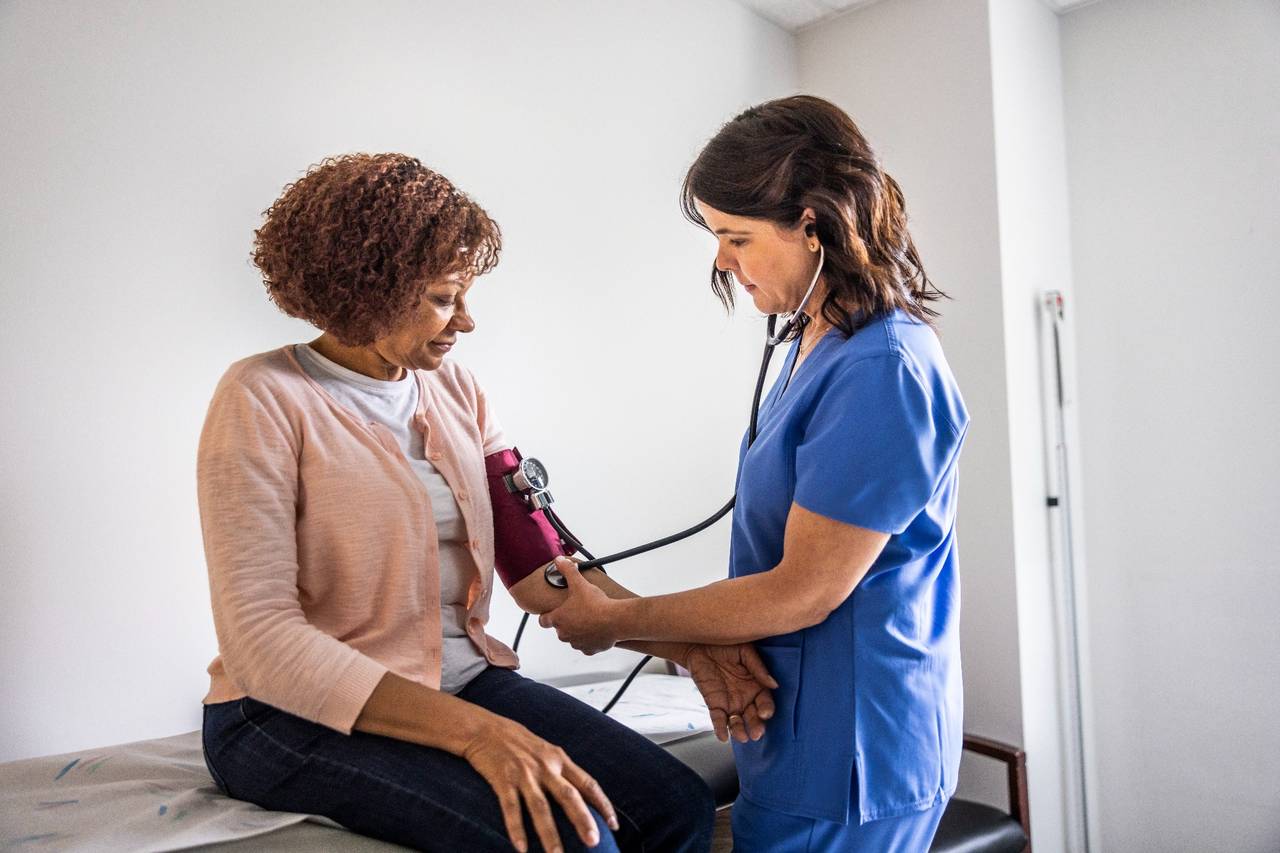How Does Heat Affect Blood Pressure?

Whether the temperatures are rising where you live or you’re taking a wintertime trip to a warmer climate, it’s important to understand the effect of heat on blood pressure. That way, you can take steps to help your body manage your blood pressure properly.
Heat and High Blood Pressure
If you have high blood pressure, warm temperatures can affect you in multiple ways. Blood pressure tends to be higher in cold weather due to the constriction of blood vessels as the body attempts to retain heat. The opposite is true in warm weather — blood pressure typically is lower.
That’s good if you have high blood pressure. However, there are also certain negative relationships between high temperatures and high blood pressure. For example, some hypertension medications increase sun sensitivity. As a result, you have a higher risk of sunburn and a condition called photosensitivity, which is a reaction that can cause skin blisters or a rash.
Also, you can experience dizziness, fainting, or falls if the heat-related lowering of your blood pressure happens too quickly.
Additional Cautions About High Blood Pressure and Hot Weather
If you have high blood pressure, you should also be aware that heat can cause other issues, particularly when combined with humidity above 70%. These symptoms develop because your body is working hard to cool itself through changes like increased blood flow to the skin and sweating.
These responses help you radiate more heat to the environment, reducing your body temperature. But it’s crucial to note that they also increase your risk of dehydration.
You should take action to cool yourself if you experience any of these signs:
- Disorientation or confusion
- Nausea
- Excessive sweating or notable lack of sweating
- Fatigue
- Dizziness or lightheadedness
- Fast pulse
- Cold, moist skin
- Headache
- Muscle spasms or cramps
- Swelling in your extremities
If you experience more than a few of them, you should seek immediate medical attention. You should also monitor loved ones for these symptoms, especially if they:
- Are 50 or older
- Are overweight
- Have heart, lung, or kidney problems
Tips for Avoiding Issues with Blood Pressure and Hot Weather
If you’re vulnerable to high temperatures, you should take action to keep your body from overheating. That includes
- Drinking plenty of hydrating fluids
- Avoiding sun exposure, especially during the hottest part of the day
- Having a healthy diet
- Applying sunscreen
- Avoiding strenuous activities
- Easing into outdoor activities gradually
- Wearing a breathable hat that shields your head from the sun but allows heat to escape
Talk with Your Doctor About High Temperatures and High Blood Pressure
Spending time outside on a warm, sunny day can be pleasant. But for people with high blood pressure and other health conditions, it can also be dangerous.
Be aware of the risks and take steps to protect yourself and your loved ones from the adverse effects of hot weather and high humidity.
If you have questions about your heat-related health risks, your Baptist Health primary physician or heart care specialist is happy to answer them. If you don’t have a doctor, you can find one using our online provider directory.
Next Steps and Useful Resources
Symptoms of High Blood Pressure (Hypertension)
What Causes High Blood Pressure?
Tips to Avoid the Effects of Heat on Heart Rate



